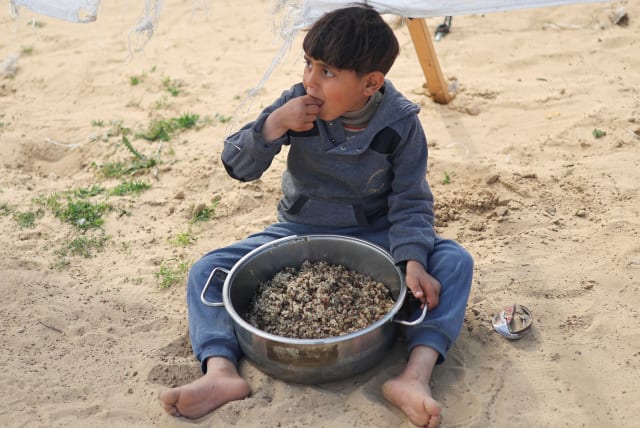UNICEF has closed 21 malnutrition treatment centers in the Gaza Strip

UNICEF closed 21 treatment centers in Gaza due to Israeli military operations and evacuation orders. The ongoing blockade has prevented aid from entering Gaza, affecting over one million children.
The UN Children's Fund has closed 21 malnutrition treatment centers in the Gaza Strip, citing ongoing Israeli military operations and recent evacuation orders in the areas where these centres were operating, UNICEF Spokesperson Kazem Abu-Khalaf announced on Sunday.
Khalaf said that the closures were directly linked to Israel's renewed military actions and the increasingly volatile security situation, as reported by the Palestinian WAFA news agency.
The spokesperson added that UNICEF was currently awaiting findings from a special body tasked with assessing the scale of food insecurity in Gaza. The body aims to present a comprehensive picture of the deteriorating conditions.
According to UNICEF, no aid has been allowed into Gaza since March 2, "representing the longest period of aid blockage since the start of the war, resulting in shortages of food, safe water, shelter, and medical supplies."
The regional director for the Middle East and North Africa, Edouard Beigbeder, explained that UNICEF "has thousands of pallets of aid waiting to enter the enclave. Most of this aid is lifesaving – yet instead of saving lives, it is sitting in storage."

The crisis in Gaza
The closures come as Gaza faces an unprecedented humanitarian emergency, exacerbated by Israel's continued blockade of aid into the enclave.
According to UNICEF, Israeli authorities have blocked all crossings into Gaza for 38 consecutive days, preventing the entry of food, medical supplies, and nutritional supplements.
On Saturday, UNICEF issued a stark warning, stating that more than one million children in Gaza have been cut off from life-saving humanitarian assistance for over a month.
The organization condemned the blockade, calling it a violation of international humanitarian law with devastating consequences for children and other vulnerable groups.
UNICEF confirmed that thousands of aid parcels are ready for immediate delivery but have been unable to gain access. It also revealed that food supplies for infants in Gaza have been entirely depleted, while the remaining stock of ready-to-use infant milk is only sufficient to feed 400 children for one month.
The crisis in Gaza has intensified since the resumption of military operations in March, which ended a temporary ceasefire that came into force earlier this year.
Israel's war with Hamas, which started in October 2023, has left much of Gaza's infrastructure in ruins and displaced hundreds of thousands of civilians.
Aid agencies have repeatedly warned of the risk of famine and a collapse of basic health services unless humanitarian access is urgently restored.
